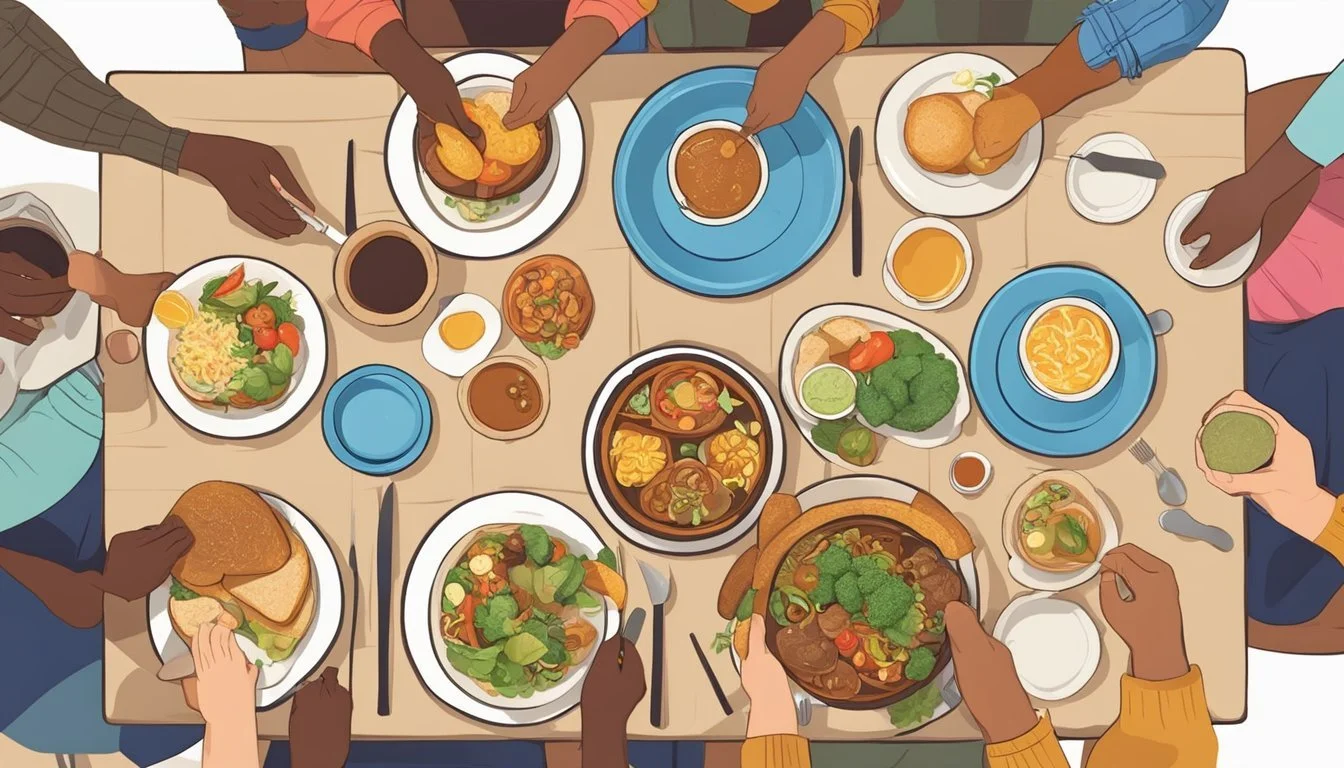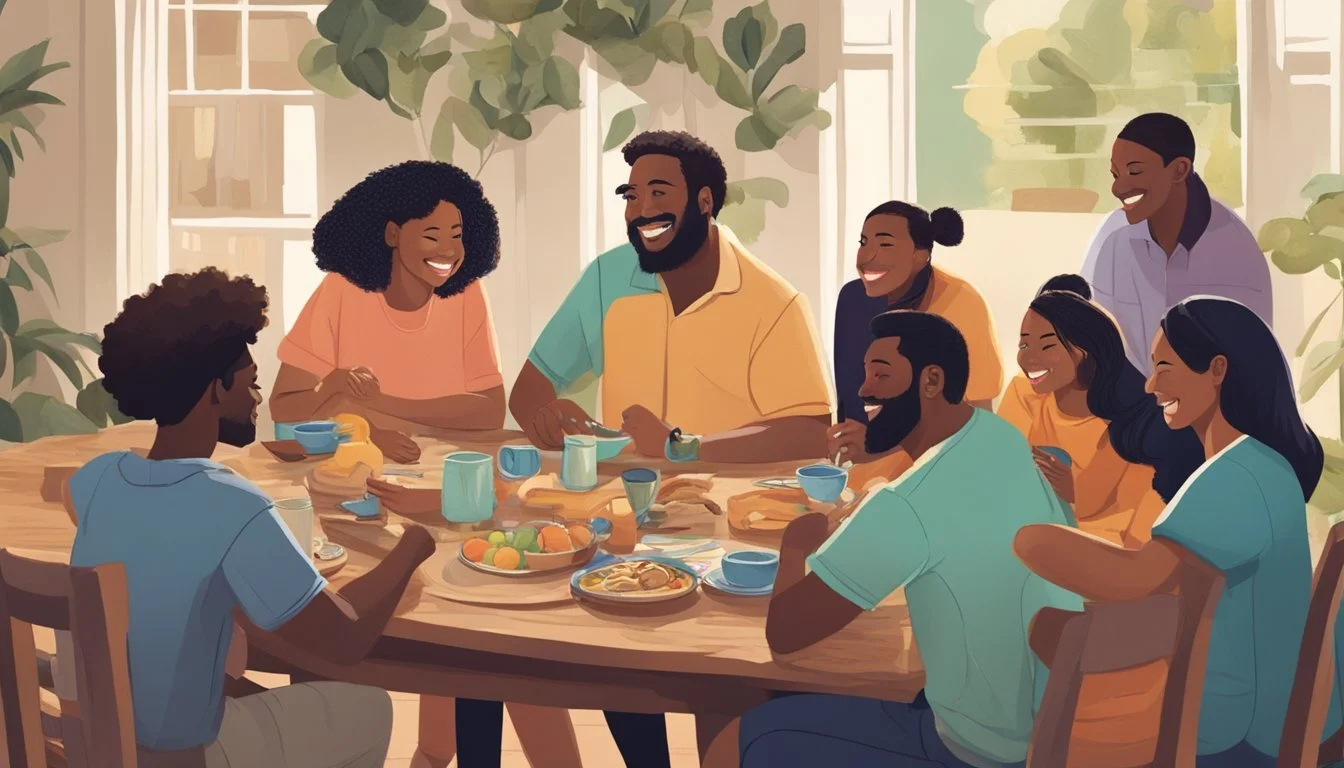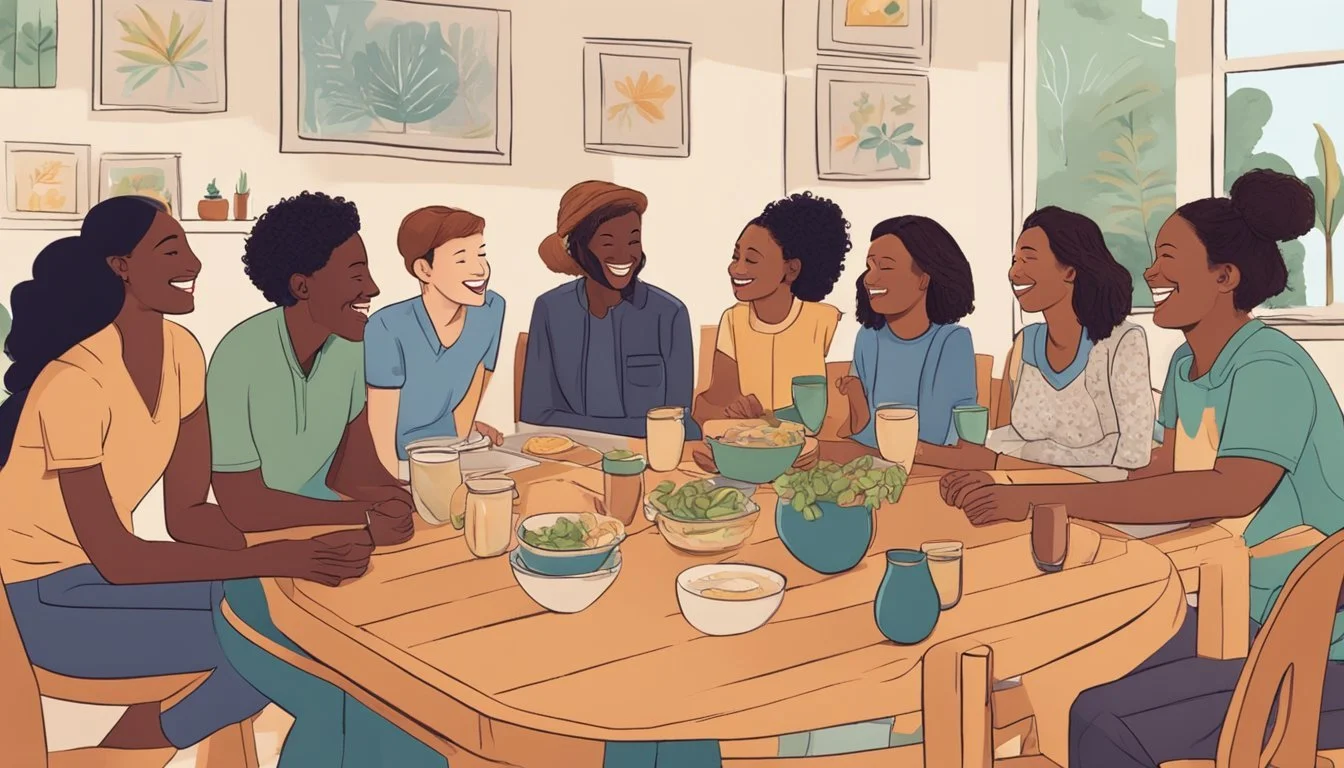7 Benefits of Having Friends from Different Backgrounds
Enhancing Personal Growth and Cultural Understanding
Friendships play a crucial role in our lives, shaping not only our personal growth but also our understanding of the world. Having friends from diverse backgrounds can greatly enrich one's perspectives and experiences. These relationships allow individuals to learn and appreciate different cultures, traditions, and viewpoints.
The benefits of diverse friendships extend beyond just cultural understanding. These connections can foster empathy, broaden social networks, and enhance emotional support, demonstrating why diversity in friendships is essential for a fulfilling life.
1) Fostering Cultural Awareness
When individuals form friendships with people from different backgrounds, they naturally learn about diverse cultures. This exposure helps them understand various traditions, values, and perspectives. As a result, they become more culturally aware and respectful.
Cultural awareness involves recognizing the similarities and differences between cultures. This understanding can help reduce cultural prejudices and stereotypes. Through these friendships, individuals develop a broader worldview.
Consistently interacting with friends from different backgrounds encourages empathy and sensitivity towards cultural differences. It teaches individuals to appreciate and value diversity. This helps in creating inclusive environments where everyone feels respected and understood.
Becoming culturally aware allows individuals to make more informed decisions in various situations. When they understand different cultural norms, they can anticipate how others might interpret or react to certain actions. This skill is particularly beneficial in multicultural workplaces and communities.
Additionally, fostering cultural awareness through diverse friendships can lead to improved communication and interpersonal skills. People learn to navigate conversations with a deeper understanding of cultural nuances, which enhances mutual respect and cooperation.
Exposure to different cultures through friendships also promotes personal growth and continual learning. It allows individuals to explore new ideas, foods, and traditions, enriching their lives with diverse experiences.
For those interested in building diverse communities, fostering cultural awareness is crucial. Building relationships with people from different cultures is key to achieving significant goals, whether in education, health care, or community development.
2) Encouraging Diverse Perspectives
Having friends from different backgrounds brings varied perspectives to the table. These diverse viewpoints can lead to more creative solutions in problem-solving.
Exposure to different cultures and traditions can help individuals challenge their own biases. This can foster open-mindedness and a deeper understanding of complex issues.
Diverse friendships can also lead to enhanced empathy. By hearing about different life experiences, people learn to appreciate struggles and triumphs that are different from their own.
Individuals with varied friends may find it easier to approach tasks in innovative ways. They are often more adaptable and capable of considering multiple angles before making decisions.
Diverse perspectives can enrich personal growth. Interacting with friends from different backgrounds encourages learning and expands one's worldview significantly.
Studies have shown that people with diverse social circles often perform better in collaborative settings. They are more likely to value and incorporate different viewpoints in their work.
Learning about others' perspectives can also stimulate intellectual curiosity. This can promote a lifelong attitude of inquiry and reflection.
Having friends from different backgrounds broadens support networks. It offers a range of advice and insights that wouldn't be available in a more homogeneous group. More insights on the benefits can be found here.
3) Enhancing Communication Skills
Interacting with friends from different backgrounds helps improve communication skills significantly. Exposure to diverse perspectives and experiences allows individuals to understand various communication styles and preferences. This understanding can lead to more effective and empathetic conversations.
Adapting to different ways of speaking and expressing oneself becomes second nature. Whether it's navigating language barriers or non-verbal cues, these interactions build a more versatile communicator. This versatility is beneficial in both personal and professional contexts.
Effective communication is not just about talking but also about listening. Engaging with diverse friends enhances listening skills, making one more attentive to nuances and unspoken words. This is crucial for fostering strong relationships and reducing misunderstandings.
Maintaining friendships across cultures and backgrounds often involves learning and respecting different norms and etiquettes. This respect fosters an environment where open and honest dialogues can thrive. Enhanced communication skills lead to deeper connections and a broader view of the world.
In professional settings, these improved communication skills stand out. Being able to convey ideas clearly and persuasively to people from various backgrounds is a valuable asset. For instance, diverse networks can foster new ways of thinking by connecting individuals to those who challenge their assumptions and biases.
4) Building Empathy
Engaging with friends from different backgrounds can significantly enhance a person's ability to empathize. Interacting with individuals who have unique experiences and perspectives encourages one to see the world through their eyes, broadening one's outlook.
Exposure to diverse cultures often challenges preconceived notions and biases. People become more aware of their own subconscious prejudices and are prompted to address them, leading to a more empathetic mindset.
Having friends from various cultural backgrounds provides valuable learning opportunities. Understanding their struggles, achievements, and everyday experiences fosters a deeper emotional connection. This helps in developing a genuine interest and curiosity about others' lives and perspectives.
Studies have shown that empathy reduces stress and improves overall mental health. It creates a more compassionate and supportive social environment. By practicing empathy, relationships become stronger and more meaningful, as individuals are better able to respond to each other's emotional needs effectively.
Diverse friendships also expand one’s emotional vocabulary and listening skills. Through active and attentive listening, people learn to better interpret and respond to the emotions of others. This is vital for nurturing strong, empathetic bonds.
5) Broadening Worldviews
Friends from different backgrounds enrich perspectives. They share unique experiences, beliefs, and cultural practices, challenging preconceived notions.
Engaging with diverse friends exposes individuals to various traditions and societal norms. This promotes a deeper understanding of global cultures.
Such exposure encourages critical thinking. It urges people to question stereotypes and broaden their worldviews.
Intercultural friendships foster curiosity. They motivate individuals to learn new languages and explore different places.
These relationships also teach empathy. Understanding someone else's life experiences fosters compassion and mutual respect.
In addition, diverse friendships enable personal growth. They encourage adaptability and open-mindedness in various social situations.
Developing a broader worldview through diverse friendships can also enhance problem-solving skills. Varied perspectives lead to more creative solutions.
Interacting with friends from different backgrounds can improve communication skills. It involves understanding and navigating cultural nuances.
Broader worldviews cultivated through these relationships increase cultural competency. They prepare individuals for diverse workplaces and global interactions.
To explore more about the benefits of intercultural relationships, visit this article.
6) Breaking Stereotypes
Having friends from different backgrounds helps dismantle stereotypes. Exposure to diverse perspectives challenges assumptions and broadens understanding.
Stereotypes arise from limited or biased views. Interacting with people from varied cultures or backgrounds provides a more accurate representation.
Through these friendships, individuals learn to see beyond generalized labels. This fosters mutual respect and helps recognize the individuality of each person.
A diverse friend group can educate on the complexities of different identities. It sheds light on the discrimination or prejudices others face, promoting empathy.
Positive interactions with diverse friends counteract negative stereotypes. These personal connections demonstrate that people cannot be easily categorized.
To explore more on how diversifying friendships can reduce misconceptions, visit this article.
7) Strengthening Social Networks
Having friends from diverse backgrounds can greatly enhance social networks. Different cultural perspectives bring a variety of ideas and experiences, which can lead to more meaningful connections.
Engaging with a variety of individuals helps to create a more robust and supportive social fabric. People are more likely to help each other when there is a strong network of diverse relationships.
Interactions with friends from different backgrounds can reduce feelings of loneliness and social isolation. This interaction can lead to improved mental and physical health due to increased social support.
The exposure to different cultures, belief systems, and worldviews can also improve empathy and understanding. This can lead to more compassionate and supportive relationships.
In the workplace, having a diverse network of friends can improve performance and creativity. Diversity encourages innovative thinking and problem-solving, contributing to a more dynamic work environment.
Strengthening social networks through diverse friendships also prepares individuals to navigate various social situations more effectively. It broadens their abilities to communicate and collaborate with people from all walks of life.
Diverse social networks do not only benefit personal relationships but also contribute to community cohesiveness. These networks can create a richer, more inclusive community experience.
For more information on building a strong social support network, visit Psychology Today.
Enhancing Personal Growth
Cultivating friendships with individuals from diverse backgrounds can significantly impact personal development. It opens doors to new viewpoints and encourages individuals to rethink entrenched beliefs.
Expanding Perspectives
Friends from various cultures offer fresh insights which can lead to a broader understanding of the world. Interacting with people who have different life experiences fosters a deeper awareness of global issues and diverse lifestyles.
For instance, learning about different cultural traditions can enrich one's knowledge and appreciation of others. Exposure to varied viewpoints can also inspire new ways of thinking and problem-solving, enhancing creativity and innovation.
Through conversations and shared experiences, individuals become more open-minded. This helps to build empathy and reduces prejudice, creating a more inclusive mindset.
Challenging Assumptions
Having friends from different backgrounds prompts reconsideration of personal beliefs and assumptions. These relationships can reveal the biases and stereotypes one might hold unconsciously.
Engaging in dialogues with friends who have different opinions encourages critical thinking. This process not only fosters intellectual growth but also promotes emotional resilience.
When faced with new perspectives, individuals learn to question their viewpoints and consider alternate ideas. This skill is valuable in personal and professional contexts, as it promotes a culture of continuous learning and adaptability.
By challenging assumptions, individuals can grow more tolerant and understanding, contributing positively to their social environments.
Building Cultural Awareness
Building cultural awareness requires understanding different traditions and values. These aspects help in appreciating and respecting the unique qualities of diverse cultures.
Learning About Traditions
Learning about traditions involves familiarizing oneself with the customs, rituals, and celebrations of different cultures. This often includes understanding significant holidays, traditional foods, and customary clothing. For example, knowing the importance of Diwali to Indian culture or the significance of Chinese New Year can enhance interpersonal relationships.
Exposure to various traditions broadens one's perspective. It promotes empathy by helping individuals see the world from different cultural lenses. Additionally, participation in cultural celebrations can be a hands-on way to learn and connect with others.
Understanding Values
Understanding values is crucial for building cultural awareness. Values dictate how people from different cultures perceive right and wrong, priorities, and interpersonal interactions. For instance, in some cultures, family and community take precedence, while others may prioritize individual achievement.
These values impact communication styles and conflict resolution. Recognizing these differences helps in managing expectations and fostering respectful interactions. Acknowledging values such as respect for elders in many Asian cultures or the communal approach in African cultures can significantly enhance mutual understanding.
Improving Social Skills
Developing social skills is essential for forming and maintaining friendships across diverse backgrounds. This includes the ability to communicate effectively and resolve conflicts amicably.
Effective Communication
Effective communication is critical for fostering mutual understanding and respect among friends from different backgrounds. It involves not only verbal skills but also the ability to use and interpret non-verbal cues.
Using positive body language such as smiling, maintaining eye contact, and nodding can help in creating a welcoming atmosphere. It's imperative to be aware of cultural differences in non-verbal communication. For example, the meaning of gestures can vary significantly between cultures.
Active listening is another vital component. It means fully concentrating on the speaker, understanding their message, and responding thoughtfully. Paraphrasing what the other person has said can demonstrate that their message has been understood correctly.
Being open and receptive in communication encourages honest exchanges and helps build trust. This includes being able to express one’s own thoughts and feelings clearly and respectfully, without making assumptions or judgments about the other person's background.
Conflict Resolution
Conflict resolution requires addressing disagreements with patience and empathy. Misunderstandings are inevitable, especially when friends come from different backgrounds with varied perspectives.
Identifying the root cause of the conflict is the first step. This means looking beyond the immediate disagreement to understand underlying issues or cultural differences that might be contributing factors.
Practicing empathy involves trying to see the situation from the other person's viewpoint and acknowledging their feelings and experiences. This can soothe tensions and foster a cooperative environment.
Discussing the conflict constructively means focusing on behaviors and outcomes rather than personal attributes. It is helpful to use "I" statements (e.g., "I feel" rather than "you always") to avoid sounding accusatory.
Compromise and flexibility are crucial. Both parties should be willing to make concessions and find a mutually acceptable solution. This can strengthen the bond and trust between friends, making future conflicts easier to manage.







